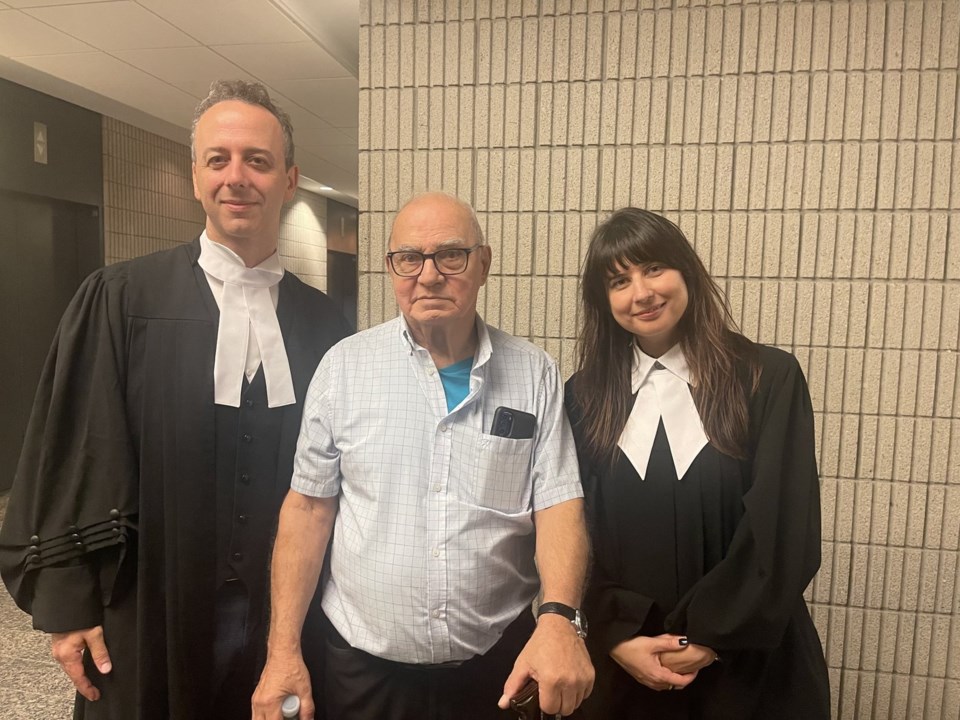MONTREAL — One of the lawyers for a Quebec man who was acquitted Wednesday of a decades-old double murder hopes her client's case will convince other wrongfully convicted people not to lose hope.
On Thursday, for the first time in more than 40 years, Claude Paquin woke up as a completely free man, after Quebec's Crown prosecutor's office declined to try him for a second time for the 1978 murders of Ronald Bourgouin and Sylvie Revah.
Lawyer Julie Harinen describes the result as "historic and exceptional" because so few murder convictions are overturned in Quebec.
"For the first time, he doesn’t have to report to a parole officer," she said of her client, who is in his early 80s. "He can go where he wants, when he wants. He doesn’t have to ask anyone's permission."
Paquin was first convicted of the murders in 1983, his appeal was unsuccessful, and he served 18 years in detention before being granted parole more than 20 years ago. However, Harinen said he still had to obey strict conditions, including not having a passport or travelling more than a certain distance from his home without permission.
Outside the courtroom on Wednesday, Paquin told reporters he was "coming out of hell, and I now have total freedom." He has always maintained his innocence, and repeated that he wanted the victims' families to know that "never, never, never did I participate in that, in those homicides."
Projet Innocence Québec, a group that fights for the wrongfully accused, took up Paquin's case several years ago, and this year federal Justice Minister Arif Virani ordered a new trial after concluding there were "reasonable grounds to conclude that a miscarriage of justice likely occurred."
Harinen says the prosecutor's decision to drop the case was based on new evidence, including that the informant who served as the main witness against Paquin changed his story and received money and favours in return for testimony.
The bodies of Bourgouin and Revah were found in Quebec's Laurentians region on Oct. 1, 1978. The informant, Bernard Provençal, testified that Paquin had ordered and orchestrated the murders, which the prosecution argued came after Bourgouin angered a gang of drug traffickers.
In addition to that now-discredited testimony, Harinen says there were also statements from another witness who testified Paquin was not involved, and questions about the handling of the crime scene.
The victory comes after many years of efforts by lawyers with Projet Innocence Québec, including Harinen, who first started working on Paquin's case when she was a law student.
She says applications for ministerial reviews are long and complicated, adding that the rules prevent applicants from receiving legal aid and require lawyers to work pro bono.
Projet Innocence, she said, has long fought for an independent stand-alone commission to review cases in which a miscarriage of justice is suspected. Federal legislation to create it was tabled last year, and is currently being analyzed by the Senate.
In the meantime, she says she hopes Paquin's case serves as encouragement to other people who are fighting to prove their innocence.
"I want this event to allow all these people who are convicted to maintain hope, and to believe in the future," she said.
This report by The Canadian Press was first published Nov. 7, 2024.
Morgan Lowrie, The Canadian Press




